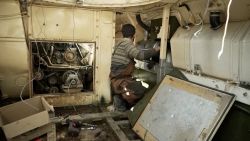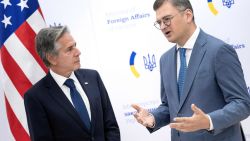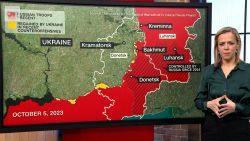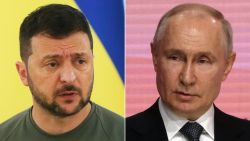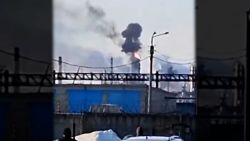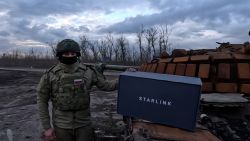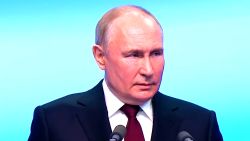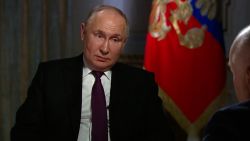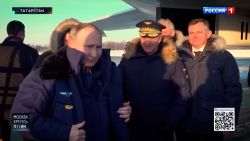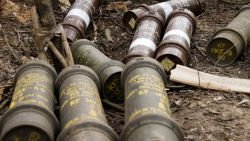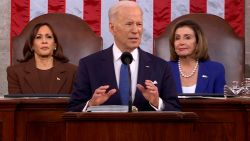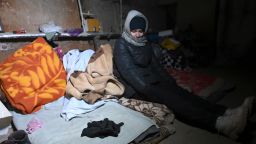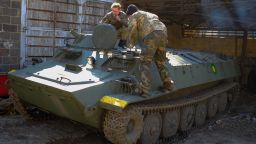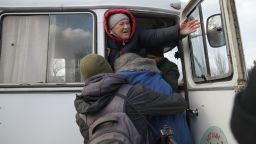Civilian casualties continue to mount as a result of Russian attacks on Ukraine, and the besieged city of Mariupol has refused to surrender despite constant bombardment. Here are the key developments from the weekend.
Ukrainian officials reject Russian request to surrender Mariupol
Russian forces continued their assault on the southeastern city of Mariupol, striking an art school turned bomb shelter on Sunday.
The city council put the number sheltering in the school building at 400, but Petro Andrushenko, an adviser to the city mayor, said it was not clear how many people were there.

In a video message late Sunday, Ukrainian President Volodymyr Zelensky said there were no military positions near the art school.
Most of the people sheltering there were “women and children, the elderly. They are under the rubble. We do not know how many are alive now, but we know that the pilot who dropped that bomb will definitely be shot down,” he said.
Russia issued an ultimatum to city authorities to surrender before dawn Monday, but both the government in Kyiv and the Mariupol city authorities rejected the Russian terms.
Zelensky said Sunday that Russia’s actions in Mariupol were an “act of terror that will be remembered for centuries.”
Dozens of care home residents killed by Russian tank attack
Fifty-six elderly residents of a care home in the eastern Ukrainian town of Kreminna were killed when a Russian tank opened fire on the facility, according to Serhii Haidai, the head of the Luhansk region.
The attack happened on March 11, said Haidai, who added that 15 other residents of the care home had been abducted and taken to the town of Svatove in what is now Russian-occupied territory.
CNN has been unable to independently verify the claim.
Russia continues to attack civilian targets across Ukraine. At least 902 civilians have been killed and 1,459 injured since the start of the invasion, the office of the UN High Commissioner for Human Rights (OHCHR) said Sunday.
Russia loses another general
Ukrainian forces killed Russian General Oleg Mityaev of the 150th Motorized Rifle Division near Mariupol, according to a Telegram post shared by Anton Gerashchenko, an adviser to Ukraine’s Interior Minister, last week.
On Sunday, Aleksei Arestovich, an adviser to the head of the Ukrainian president’s office, told Ukraine’s NV News that Mityaev “most likely went to show, by example, how to fight. Because his soldiers refused to fight.”
Neither the Russian Ministry of Defense nor Russian state media have issued any statements on his death.
CNN cannot independently verify the Ukrainian claim.
Ukrainian officials say a total of five Russian generals have been killed since the invasion began on February 24. If true, this would be an unusually high number of high-ranking soldiers to have been killed in three weeks of combat. In addition, a deputy commander of Russia’s Black Sea Fleet was confirmed killed by two senior Russian officials on Sunday.
Russia launches hypersonic missiles
The Russian military claimed it had launched a series of strikes on military targets in Ukraine employing hypersonic and cruise missiles on Saturday night and Sunday morning.
In a statement released on Sunday, Russian Ministry of Defense spokesman Igor Konashenkov said sea-launched Kalibr cruise missiles were fired from the Caspian Sea, and air-launched Kinzhal hypersonic missile systems were fired from airspace over Crimea.

US officials also confirmed to CNN that Russia launched hypersonic missiles against Ukraine last week, the first known use of such missiles in combat.
The launches were likely intended to test the weapons and send a message about Russian capabilities, multiple sources told CNN.
Rising concerns over risk of attack from Belarus
On Sunday, Ukraine’s General Staff said the threat of an offensive from Belarus into northwestern Ukraine is “high,” without providing additional details.
“The level of threat from the territory of Belarus in the direction of Volyn is evaluated as high,” the military said in a statement via the presidential office, adding: “Defense forces of Ukraine are ready to resist.”
Ukraine’s northwestern Volyn region borders Belarus to the north and Poland, a NATO member, to the west.

It could serve as a gateway for attacking forces from the north to approach Lviv, a strategic city in western Ukraine.
Lviv is a hub for both Ukrainian government logistics and relief efforts, as well as a transit point for many civilians looking to flee fighting in other parts of the country.
The Russian military has already used Belarusian territory as a launchpad for its invasion of Ukraine, with forces staging an offensive push toward Kyiv and central Ukraine from southern Belarus.
There is no direct evidence that Belarus’ troops have participated in hostilities.
Russia accused of detaining reporters, activists and officials
On Saturday, Ukrainian digital broadcaster Hromadske said its reporter Victoria Roshchina had gone missing and was believed to be being held by Russian forces.
Ukraine’s human rights commissioner, Liudmyla Denisova, said Saturday the government believed she had been kidnapped by Russian forces in the town of Berdyansk, which lies on the Black Sea coast and is under Russian occupation.
Roshchina’s disappearance comes amid reports of other activists and officials being held against their will in other parts of Russian-occupied Ukraine.
In Kherson region, Dmytro Vasyliev, a senior council official in the town of Nova Kakhovka, was abducted last week, according to the town’s mayor.
Human rights organization ZMINA said some 17 people had been abducted by Russian forces in Ukraine since the start of the war.
Zelensky repeats call for NATO admission in CNN interview
In an exclusive interview on Sunday morning, the Ukrainian President told CNN’s Fareed Zakaria that he is ready to negotiate with Russian President Vladimir Putin.
“I’m ready for negotiations with him. I was ready for the last two years. And I think that without negotiations, we cannot end this war,” said Zelensky, who also warned that failed negotiations could mean the fight between the two countries would lead to “a third World War.”

Zelensky told Zakaria that Russia would not have invaded Ukraine if the country had been admitted into the NATO alliance.
“If we were a NATO member, a war wouldn’t have started. I’d like to receive security guarantees for my country, for my people,” said Zelensky.
The Ukrainian president said he was grateful for military aid sent by the alliance, but he continued his push for NATO admission for his country.
“If NATO members are ready to see us in the alliance, then do it immediately because people are dying on a daily basis,” he said.
CNN’s Tim Lister, Andrew Carey, Yulia Shevchenko, Josh Pennington, Maria Kostenko, Oleksandra Ochman, Nathan Hodge, Oren Liebermann and Olga Voitovych contributed to this report.

